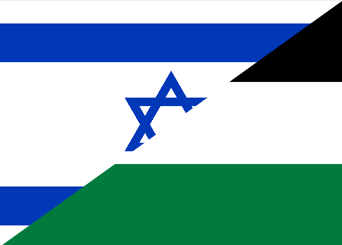Two-thirds of respondents said they continue to support the Hamas-led Oct. 7 attack on Israel, in which militants killed 1,200 people and took at least 240 hostages, and 80% believe it put the Palestinian issue at the center of global attention.
In the June 12 poll, 40% of Palestinians in both the West Bank and Gaza said they would prefer Hamas to govern them, followed by Fatah (20%), the Palestinian National Liberation Movement in control of the West Bank and led by Mahmoud Abbas. Eight percent chose others. Support for Hamas over the preceding three months increased by 6%.
Shikaki explains this significant support for Hamas despite the suffering caused by the war: “The support for Hamas comes from various sources, but the most important one is because Palestinians share Hamas’ values. They will support Hamas for that, even if Hamas makes wrong moves here or there."
He explained that those values comprise three main elements: a high level of religious observance, no separation of faith and state and primacy of religious identity over national and ethnic identity. He said about one-third of people polled in Gaza share those values, and slightly fewer in the West Bank.
Meaning: according to this survey, ~33% of Gazans and West Bankers share the values of Islamism and Jihad (terroism).
Q: According to your last surveys, about 90% or so of Palestinians do not believe that Hamas committed atrocities such as killing women and children or raping during the attack on Israel last Oct. 7. How do you explain that?
A: …However, we still have the other half of those who’ve seen the videos who don’t believe Hamas committed atrocities, and that’s because they think it’s all fabrication.
The change here has been dramatic today. The majority of Palestinians believe that violence or armed struggle is the most effective step for ending the Israeli occupation. Starting in 2015, we began to see a rise, but not a majority. The formation of the current Israeli government under Netanyahu early in 2023 made the difference. Even before Oct. 7, a majority of Palestinians in the West Bank was already supporting violence in a manner that we have not seen since 2005.
Q: According to your last polls, the most popular leader for the Palestinian people is not Hamas nor the Palestinian Authority, but Marwan Barghouti, who has been in an Israeli prison for more than 20 years for murdering Israeli citizens. He is a well-known supporter of the two-state solution. Can you explain this support for Barghouti?
A: Barghouti was popular before Oct. 7. His popularity increased significantly after Oct. 7. There is absolutely no doubt about that. In the last 20 years, Barghouti has been the most popular Palestinian leader.
…Only one in ten Palestinians have seen videos showing atrocities committed by Hamas.
Ninety percent, compared to 80% three months ago, say they did not see videos, shown by international news outlets, showing acts committed by Hamas against Israeli civilians, such as the killing of women and children in their homes; only 9% (6% in the West Bank and 13% in the Gaza Strip) saw these videos.
Statistical error or for some reason 10% of respondents answered differently?
Describing Figure (4): 54% of those who have seen videos actually denies that Hamas commited atrocities.
It is useful in this context to mention that Al Jazeera is the most watched TV news station in Palestine as about 70% chose it as the most watched station during the past two months. Due to the current war conditions, West Bankers are more inclined than Gazans to watch Al Jazeera, with 83% of West Bankers saying it is their preferred channel.
Meaning: That’s why many people consider Al Jazeera (controlled by the authoritarian government of Qatar) to be the biggest supporters of the Muslim Brotherhood, and by extension considered to be the media arm of the terrorist organization Hamas.
Yes, this poll, even if the pollster doesn’t want it to show this, largely shows that Palestinians want war and violence.


